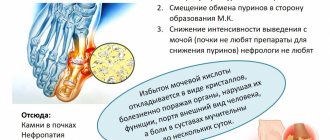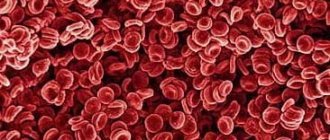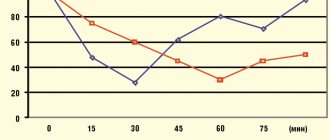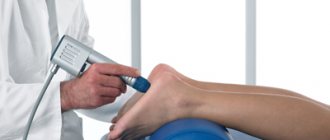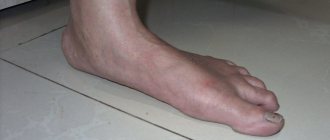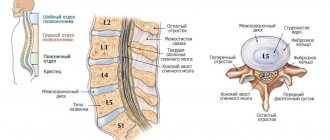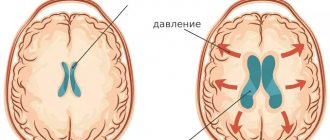A uric acid (UA) test is recommended for recurrent episodes of severe pain in various joints, especially the big toe, as well as other fingers and joints. Such pain may indicate a disease called gout, which is caused by a disorder of uric acid metabolism.
Gout manifests itself as arthritis and the formation of gout nodules. The disease often affects overweight middle-aged men and people with reduced physical activity, as well as older women.
When to check your uric acid level
- Kidney failure.
Testing is recommended to identify the causes of renal failure and monitor treatment. Gout is often associated with kidney disease. - Diagnosis of kidney diseases
. Elevated levels of uric acid in the blood, or hyperuricemia, can occur with various kidney diseases. Hyperuricemia accelerates the worsening of kidney damage. - Stones in the kidneys
. High levels of uric acid in urine create a favorable basis for the development of kidney stones. - Preeclampsia
. The test is recommended for pregnant women at risk of preeclampsia (a disease characterized by impaired kidney function). Symptoms include increased blood pressure, low urine output, swelling of the face, arms, legs, lungs and brain, headaches, blurred vision, etc.
Increased uric acid levels have been reported in pregnant women with a predisposition to preterm birth.
Important Notes
Material for research
Capillary blood.
Children under 7 years of age: venous blood/capillary blood (for special indications). Children over 7 years of age and adults: venous blood. Capillary blood collection for research is carried out only for children under 7 years of age (for special indications)! According to GOST R 53079.4-2008, indications for taking capillary blood are possible: in newborns, in patients with very small or hard-to-reach veins, with large-area burns, and in severely obese patients.
What kind of analysis is this?
What is this test
Uric acid is the end product of the metabolism of purines (a naturally occurring organic substance containing nitrogen). Purines are essential for the production of DNA and RNA from nucleic acids and a number of enzymes. Most purines are produced by the breakdown of cells in the body, or the replication of purines. Purines are contained in a small part of the human diet (meat, liver, fish, legumes).
In the cells of the liver and intestinal mucosa, purines are converted into uric acid. Under physiological conditions, uric acid is part of body fluids and performs several functions; 75% of uric acid is excreted in the urine, the rest through the intestines.
If too much uric acid is produced or the body's metabolism is impaired, uric acid levels in the blood rise or hyperuricemia develops, which promotes the formation of uric acid salts or urate crystals.
Long-term hyperuricemia causes the loss of urate crystals from the blood into tissues: joints, cartilage, kidneys. Typically, crystals are first deposited in distant joints, such as the toe. Crystals that enter the urinary tract cause the formation of kidney stones and impaired kidney function.
Before taking the test, it is recommended to avoid foods rich in purines (meat, fish), alcohol and stress.
You will receive the analysis result within 3 working days.
Antinuclear antibodies (ANA)
Using the ANA test, you can determine the presence of antinuclear antibodies (antibodies to nuclear antigens) in the blood.
ANAs are a group of specific autoantibodies that are produced by our body's immune system in case of autoimmune disorders. Antibodies have a damaging effect on the body's cells. In this case, a person experiences various painful symptoms, such as pain in muscles and joints, general weakness, etc.
Detection of antibodies belonging to the ANA group (for example, antibodies to double-stranded DNA) in blood serum helps to identify an autoimmune disease, monitor the course of the disease and the effectiveness of its treatment.
1 Blood test for ACCP
2 Blood test for C-reactive protein
3 Blood test for ACCP
When is a blood test for antinuclear antibodies necessary?
Detection of antinuclear antibodies may be a sign of the following autoimmune diseases:
- polymyositis;
- dermatomyositis;
- systemic lupus erythematosus;
- mixed connective tissue disease;
- scleroderma;
- Sjögren's syndrome and disease;
- Raynaud's syndrome;
- autoimmune hepatitis
How is the antinuclear antibody test performed?
Blood for antinuclear antibodies is taken from a vein in the elbow, on an empty stomach. Before the study, you do not have to adhere to any diet.
In some cases, in order to differentiate various autoimmune diseases, additional clarifying tests for autoantibodies from the group of antinuclear antibodies, the so-called ANA immunoblot, may be required.
What do the test data mean?
Antinuclear antibodies (another name is antinuclear factor ) indicate the presence of some kind of autoimmune disorder, but do not precisely indicate the disease that caused it, since the ANA test is a screening test. The goal of any screening is to identify people at increased risk of a particular disease.
A healthy person with normal immunity should not have antinuclear antibodies in the blood or their level should not exceed the established reference values.
A normal ANA value implies an antibody titer not exceeding 1: 160. Below this value, the test is considered negative.
A positive test for antinuclear antibodies (1:320 or more) indicates an increase in antinuclear antibodies and the presence of a disease of an autoimmune nature in a person.
Currently, two methods are used to detect antinuclear antibodies: indirect immunofluorescence reaction using the so-called Hep2 cell line and enzyme-linked immunosorbent assay. Both tests complement each other, and therefore they are recommended to be performed simultaneously.
The following types of ANA antinuclear bodies can be distinguished in the indirect immunofluorescence reaction:
- homogeneous coloring - can be with any autoimmune disease;
- spotty or speckled coloration may occur with systemic lupus erythematosus, scleroderma, Sjögren's syndrome, rheumatoid arthritis, polymyositis and mixed connective tissue disease;
- peripheral coloring – characteristic of systemic lupus erythematosus;
If the test for antinuclear antibodies is positive, it is necessary to perform an immunoblot of antinuclear antibodies to clarify the type of autoimmune disease and make a diagnosis.
What can deviations in an analysis result from the norm indicate?
Elevated uric acid results may indicate a number of conditions:
- gout;
- kidney stones or kidney failure;
- excessive consumption of foods rich in purines;
- heavy physical activity;
- weight loss, prolonged hunger;
- tissue degradation;
- eclampsia and preeclampsia in pregnant women.
Low uric acid test results (hypouricemia) may indicate:
- condition after treatment of gout (treatment with allopurinol);
- liver damage;
- ulcerative colitis.
If the test result is abnormal, it is recommended to consult with a urologist, who will help determine the cause of the deviation and give recommendations on the need for additional tests and treatment.
Rheumatoid factor
A blood test for rheumatoid factor is aimed at identifying specific IgM class antibodies to IgG class antibodies.
A laboratory test for rheumatoid factor is a screening test aimed at identifying autoimmune disorders. The main objective of the study for rheumatoid factor is to identify rheumatoid arthritis, Sjogren's disease and syndrome and a number of other autoimmune diseases.
A rheumatoid factor test may be needed for the following symptoms:
- pain and swelling in the joints;
- limited mobility in joints;
- feeling of dryness in the eyes and mouth;
- skin rashes like hemorrhages;
- weakness, loss of strength.
1 Rheumatoid arthritis
2 Rheumatological examination
3 Rheumatological examination
Norms of rheumatoid factor in the blood
Theoretically, rheumatoid factor should not exist in a healthy body. But still, in the blood of some, even healthy people, this factor is present in a small titer. Depending on the laboratory, the upper limit of normal for rheumatoid factor varies from 10 to 25 international units (IU) per milliliter of blood.
Rheumatoid factor is the same in women and men. In older people, the rheumatoid factor level will be slightly higher.
The normal rheumatoid factor in a child should be 12.5 IU per milliliter.
Rheumatoid factor testing is used to diagnose the following diseases:
- rheumatoid arthritis;
- systemic autoimmune diseases;
- Rioglobulinemia.
Other causes of elevated rheumatoid factor
Additional reasons for increased rheumatoid factor may be the following:
- syphilis;
- rubella;
- Infectious mononucleosis;
- malaria;
- tuberculosis;
- flu;
- hepatitis;
- leukemia;
- cirrhosis of the liver;
- sepsis
If the cause of increased rheumatoid factor is an infectious disease, for example, infectious mononucleosis, then the titer of rheumatoid factor is usually less than with rheumatoid arthritis.
However, rheumatoid factor testing primarily helps to recognize rheumatoid arthritis. However, it should be emphasized that it is impossible to make a diagnosis on its basis alone. Since rheumatoid factor can be elevated in many other pathological conditions of an autoimmune and non-autoimmune nature. In addition, in approximately 30% of patients with rheumatoid arthritis, a blood test for rheumatoid factor may be negative (seronegative rheumatoid arthritis).
A blood test for rheumatoid factor is carried out in the morning on an empty stomach (8 to 12 hours should pass since the last meal).
ACDC
A blood test for ACCP consists of determining the titer of antibodies to cyclic citrullinated peptide and is one of the accurate methods for confirming the diagnosis of rheumatoid arthritis. With its help, the disease can be detected several years before symptoms appear.
What does the ACDC analysis show?
Citrulline is an amino acid that is a product of the biochemical transformation of another amino acid - arginine. In a healthy person, citrulline does not take part in protein synthesis and is completely eliminated from the body.
But with rheumatoid arthritis, citrulline begins to integrate into the amino acid peptide chain of proteins in the synovial membrane and cartilage tissue of the joints. The “new” modified protein, which contains citrulline, is perceived by the immune system as “foreign” and the body begins to produce antibodies to citrulline-containing peptide (ACCP).
ACCP is a specific marker of rheumatoid arthritis, a kind of harbinger of the disease at an early stage, with high specificity. Antibodies to cyclic citrullinated peptide are detected long before the first clinical signs of rheumatoid arthritis and remain throughout the disease.
Methodology of analysis and its significance
To detect ACCP, an enzyme-linked immunosorbent assay is used. A blood test for ACCP is carried out according to the “in vitro” principle (translated from Latin - in a test tube), serum from venous blood is examined. The ACCP blood test can be ready within 24 hours (depending on the type of laboratory).
Detection of ACCP in rheumatoid arthritis may indicate a more aggressive, so-called erosive form of the disease, which is associated with more rapid resolution of joints and the development of characteristic joint deformities.
If the test result for ACCP is positive, then the prognosis for rheumatoid ACCP arthritis is considered less favorable.
1 Blood test for ACCP
2 Blood test for C-reactive protein
3 Blood test for ACCP
ACDC. Reference values
The normal range for the ACCP test is approximately 0-5 U/mL. The so-called “ ACCP norm ” may vary depending on the laboratory. The “ACCP norm” values for women and men are the same.
The so-called “ Increased ACCP ”, for example, ACCP 7 units/ml or more, indicates a high likelihood of rheumatoid arthritis. An analysis result assessed as “ ACCP negative ” reduces the likelihood of rheumatoid arthritis, although it does not completely exclude it. A rheumatologist with experience in diagnosing and treating rheumatoid arthritis should always evaluate the ACCP values and interpret them; only a rheumatologist can take into account all the nuances.
To get tested for ACCP, you need to come for examination on an empty stomach.
Indications for the purpose of analysis:
- rheumatoid arthritis;
- early synovitis;
- osteoarthritis;
- polymyalgia rheumatica;
- psoriatic arthritis;
- Raynaud's disease;
- reactive arthritis;
- sarcoidosis;
- scleroderma;
- Sjögren's syndrome;
- SLE;
- vasculitis;
- juvenile RA.
If you want to know the cost of a blood test for ACCP, please call.
Contact center specialists will tell you the price of the ACDC and explain how to prepare for the study.
